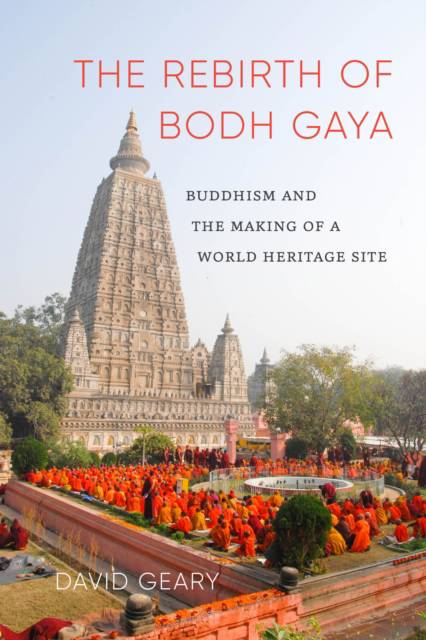
- Afhalen na 1 uur in een winkel met voorraad
- Gratis thuislevering in België vanaf € 30
- Ruim aanbod met 7 miljoen producten
- Afhalen na 1 uur in een winkel met voorraad
- Gratis thuislevering in België vanaf € 30
- Ruim aanbod met 7 miljoen producten
Omschrijving
This multilayered historical ethnography of Bodh Gaya -- the place of Buddha's enlightenment in the north Indian state of Bihar -- explores the spatial politics surrounding the transformation of the Mahabodhi Temple Complex into a UNESCO World Heritage site in 2002. The rapid change from a small town based on an agricultural economy to an international destination that attracts hundreds of thousands of Buddhist pilgrims and visitors each year has given rise to a series of conflicts that foreground the politics of space and meaning among Bodh Gaya's diverse constituencies.
David Geary examines the modern revival of Buddhism in India, the colonial and postcolonial dynamics surrounding archaeological heritage and sacred space, and the role of tourism and urban development in India.
Specificaties
Betrokkenen
- Auteur(s):
- Uitgeverij:
Inhoud
- Aantal bladzijden:
- 264
- Taal:
- Engels
- Reeks:
Eigenschappen
- Productcode (EAN):
- 9780295742366
- Verschijningsdatum:
- 15/11/2017
- Uitvoering:
- Hardcover
- Formaat:
- Genaaid
- Afmetingen:
- 152 mm x 229 mm
- Gewicht:
- 553 g

Alleen bij Standaard Boekhandel
Beoordelingen
We publiceren alleen reviews die voldoen aan de voorwaarden voor reviews. Bekijk onze voorwaarden voor reviews.











